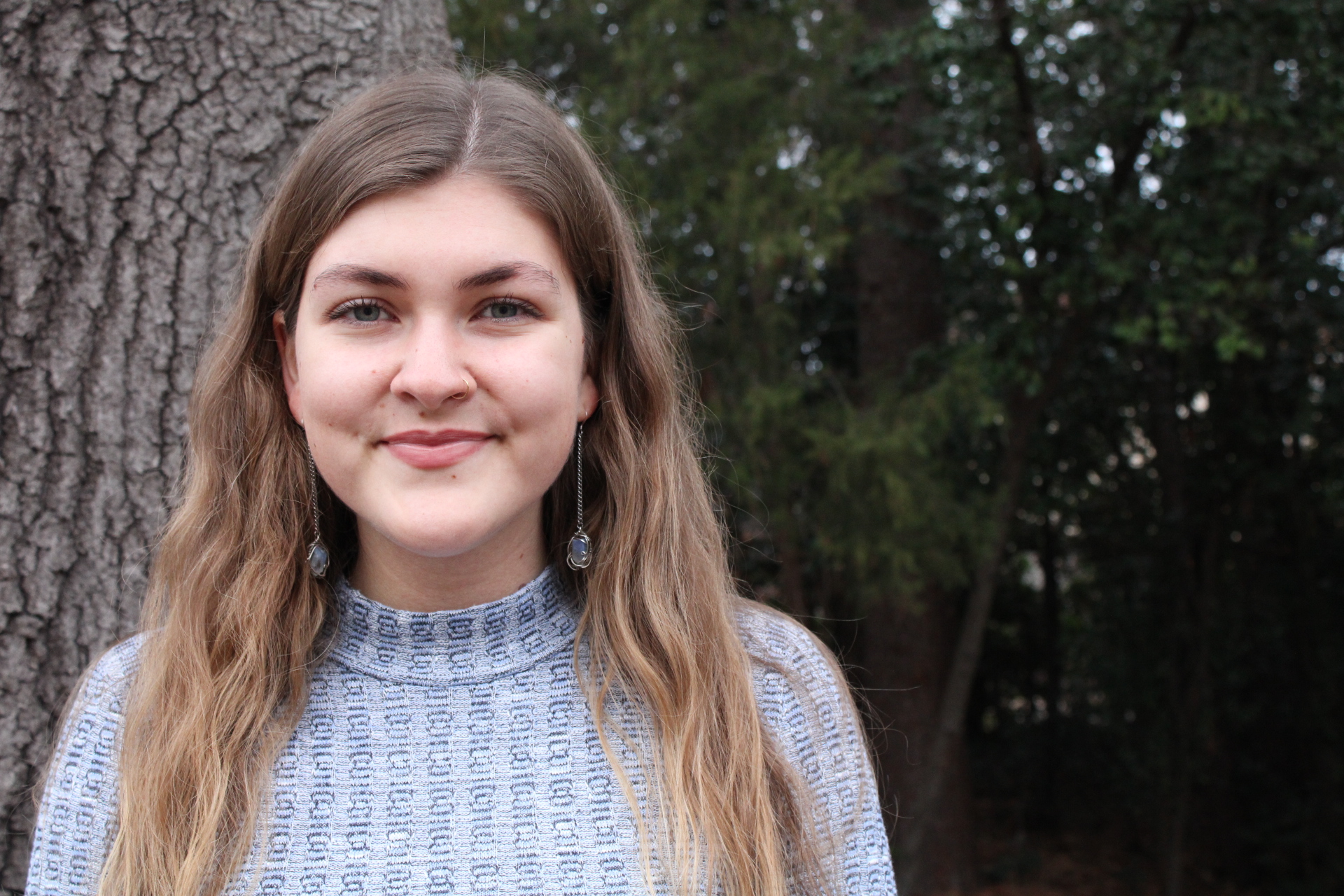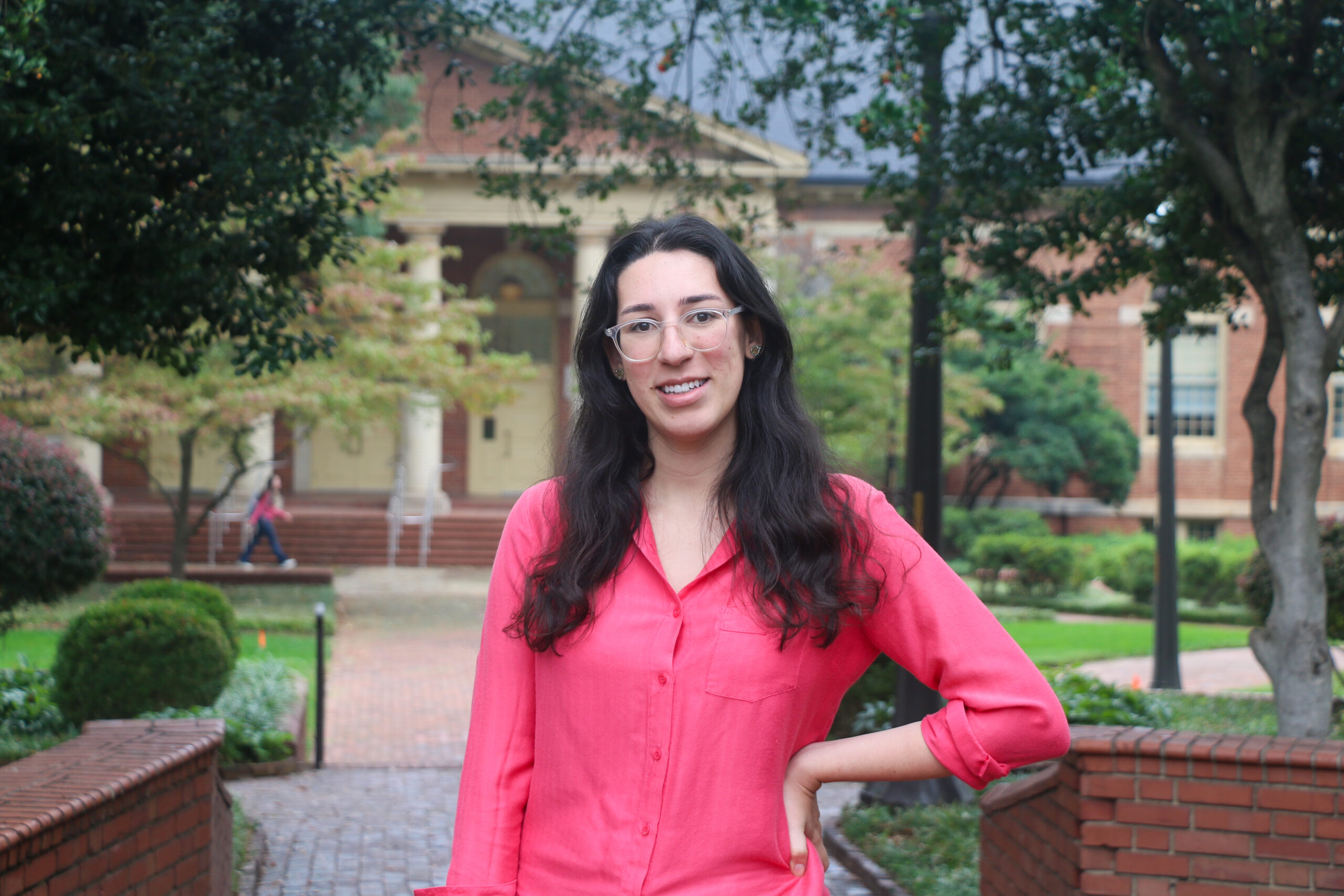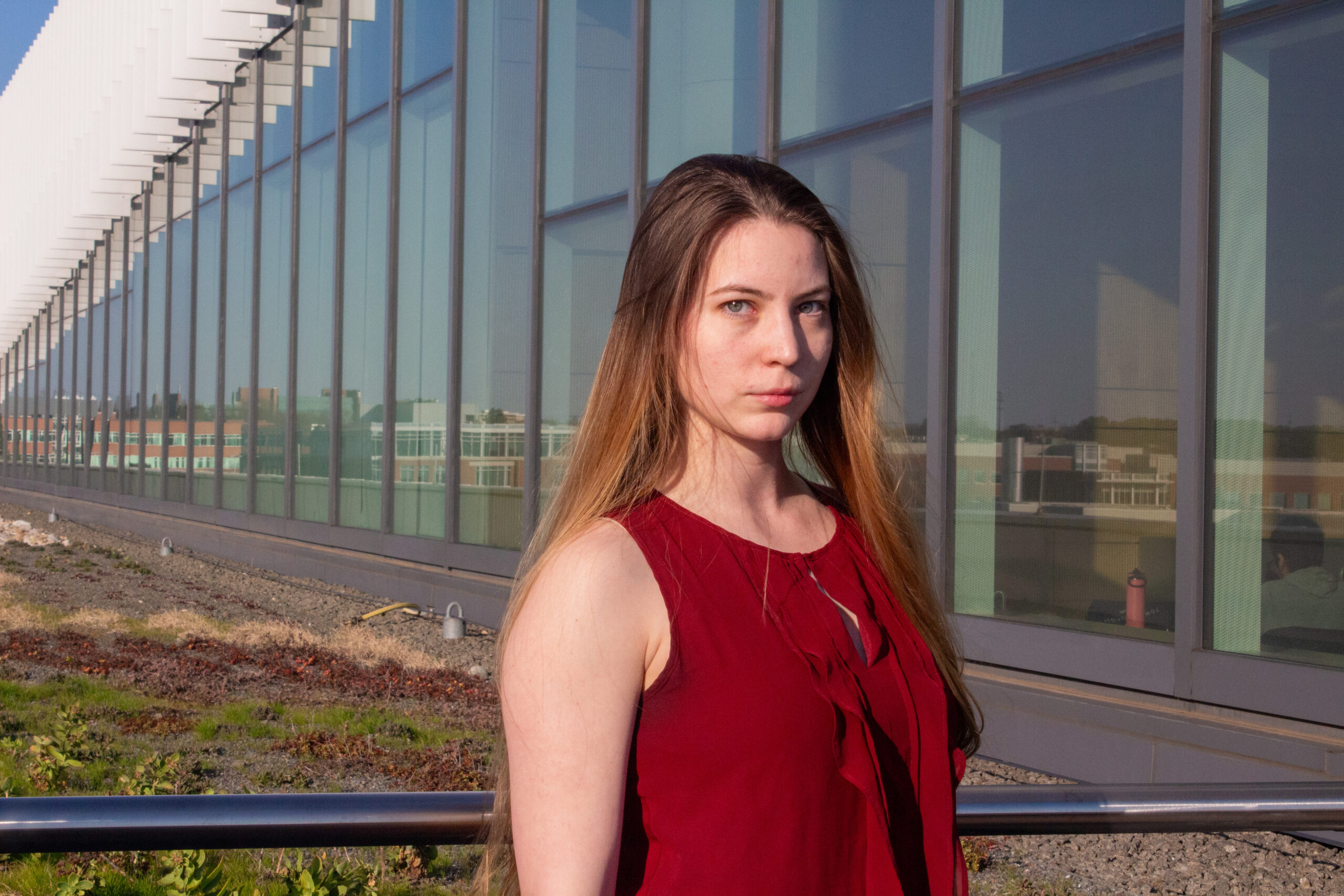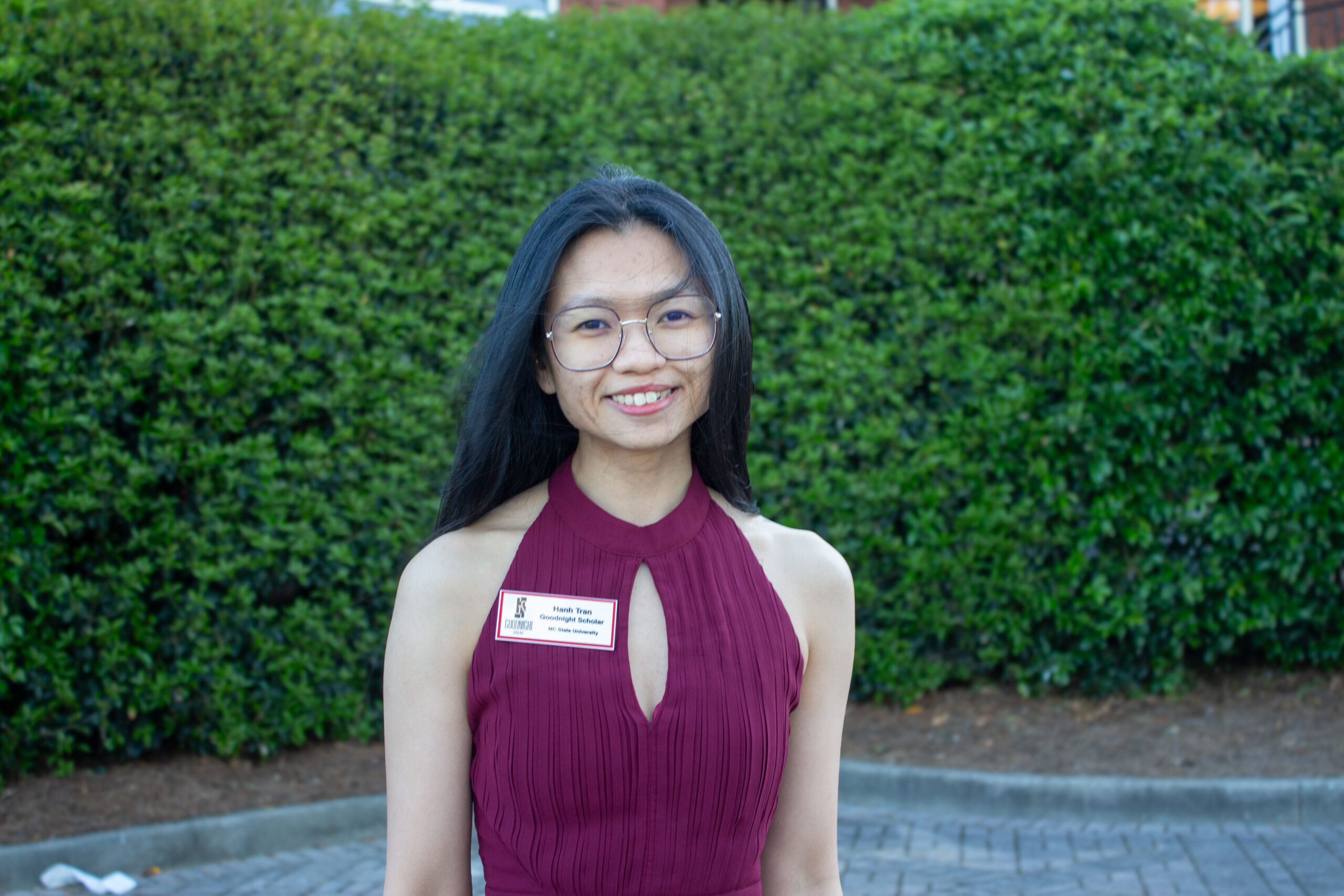Eliette Crenshaw, Goodnight Scholars Class of 2025, is one of the many who shared their world view as part of GSP 251. Read on to learn more about her outlook on life and the world around her!
I believe that we are here to figure out how we can best give back to those around us given the lessons we have learned from the afflictions we have faced. I know that many of you were presented with challenges from very early on and may have had to work harder than others to get to where you are today. I see this as a strength. I am filled with gratitude for what I have learned from life’s challenges, and I believe it has made me into a more benevolent person and led me to a career in medicine. I have found that perspective is one of the greatest determinants of happiness. I think it is best to reflect on the tribulations of life with an appreciation that you had the opportunity to learn from them.
I feel that my purpose is to be a messenger of the perspectives I have developed from the challenges that my physical disability has presented. I was born with four missing fingers and a partially formed thumb on my left hand. It’s interesting because I never thought of myself as disabled until I had to check that box on my college applications. My disability has never prevented me from achieving my goals. My parents have always urged me to strive for greatness; they said I could do anything I put my mind to. I decided I didn’t want my accomplishments to be in spite of my disability, but instead be possible because of the knowledge I have gained from the challenges it has presented.
When I first met with my Goodnight Fellow Robbye Brooks, who is the head of physical therapy for student health, he asked me what challenges my lack of fingers present in my everyday life. I sat there dumbly realizing I didn’t really have an answer. The main thing that came to mind was that it made monkey bars pretty difficult, but I’m not so sure I would call that an everyday problem.
Growing up, I was not allowed to say the word “can’t.” If I said “I can’t ride my bike because I can’t hold the handlebar on the left side,” my Dad would remind me that we don’t use that word. As an already impressively uncoordinated kid, it was easy to jump to the conclusion that my missing fingers would make riding a bike impossible. But I knew that saying “can’t” only implied a lack of the capability to think critically and problem solve, which I knew I was in fact capable of, so I began brainstorming. My dad and I eventually found a hook that would wrap around my wrist and act as fingers that could hold the handlebar for me.
Later on when I wanted to play trombone, I once again started to say I can’t do it, but knew that admitting immediate defeat was not the answer. I found an orthotics specialist to work with to engineer a handgrip that would allow me to hold my trombone.
My perspective on my disability has ebbed and flowed throughout my life, and trust me there were times when kids would be mean, and it was not so positive, but now I’m grateful for the strong sense of perseverance it has led me to have today.
I see a world where the word “can’t” will one day be scarcely used because communities work together to promote an equitable environment for all varying ability levels.
My disability also gave me the gift of finding my passion for healthcare at a very young age. I remember getting on my mom’s computer and googling the various medical explanations behind my missing fingers and being fascinated by the range of answers, from genetic abnormalities to amniotic bands wrapping around my hand and preventing growth in-utero. Another early event that sparked my interest in medicine was when my mom was dating a man with colon cancer. At 6 years old, I wanted to watch the nurse dress the surgical wounds, and I would get excited to help change the colostomy bag. Even though that was a really challenging time for my mom and I, I often think back on it with a perspective of appreciation that I got to be exposed to medical professions at such a young age. Admittedly, there were major lows; my mom’s boyfriend became very depressed, and I became more and more aware of the ties between mental and physical health. I want to go into the medical field so I can contribute to a healthcare system that examines the holistic health of the individual because mental and physical health are undoubtedly intertwined.
The final thought I want to leave you with is about the power of perspective. You cannot control the hand you were dealt, no pun intended, so make an effort to be grateful for the knowledge you have gained from the trials you’ve faced. I may have had to work harder to do basic things, but it has only shaped me into a stronger person. I feel that the world should be a place where people can be proud of their story and let it act as guidance for choosing a career that allows them to give back, as I hope to do as a healthcare professional one day.
- Categories:



